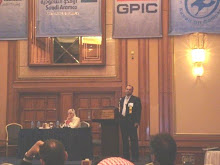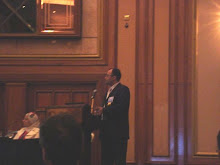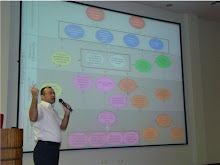Organisational Culture Barrier
Organisational culture is in many cases a roadblock to project development as shown in figure below (Peppard and Ward, 1999). Consequently, other PM practices have to be developed in Parallel to and integrating with the RMMM in order to eliminate such a roadblock (Martin et al., 2006). 
Figure: IT Business Roadblock (Peppard & Ward, 1999)
We experienced a very effective strategy to leverage this roadblock by promoting a “Community of Practice” between the business and IT Units; where Wenger et al। (2002) describes it as a group of people that are bound together informally through sharing expertise and enthusiasm to achieve a target. CoP’s are driven by values, knowledge and know-how in contrast to traditional teams that are driven by deliverables and defined tasks. We witnessed efficient circulation of knowledge through the organization and a demolition of barriers between people and departments (Yang, 2004; Davenport and Prusak, 2004) as shown in figure below.
We experienced a very effective strategy to leverage this roadblock by promoting a “Community of Practice” between the business and IT Units; where Wenger et al। (2002) describes it as a group of people that are bound together informally through sharing expertise and enthusiasm to achieve a target. CoP’s are driven by values, knowledge and know-how in contrast to traditional teams that are driven by deliverables and defined tasks. We witnessed efficient circulation of knowledge through the organization and a demolition of barriers between people and departments (Yang, 2004; Davenport and Prusak, 2004) as shown in figure below.
 Figure: Closing the business-IT gap adopted from Martin et al।, 2006।
Figure: Closing the business-IT gap adopted from Martin et al।, 2006।Post Project Review: Multi cultural teams with diversified backgrounds were more common and with CoP, it was not easy to build trust and rapport in a short time। We recommend more team building activities at the outset and developing smaller groups for less diversity.

















No comments:
Post a Comment